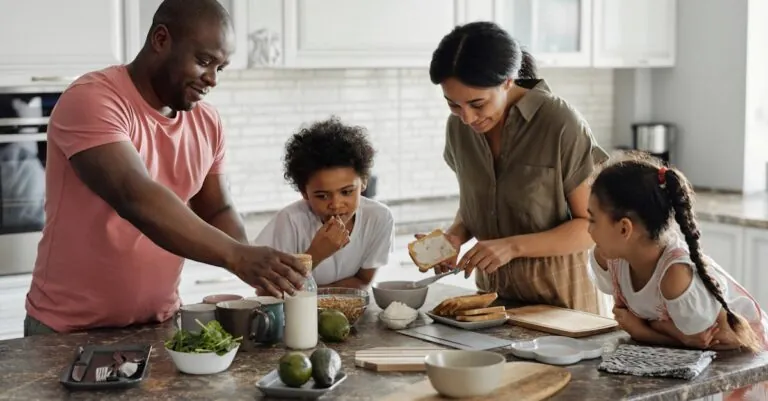There’s something magical about camper friendships that makes them unlike any other. Picture this: a group of kids huddled around a crackling campfire, sharing ghost stories, and roasting marshmallows while laughter echoes through the trees. These bonds are forged in the great outdoors, where the Wi-Fi signal is weak but the connections are strong.
As campers navigate obstacle courses and late-night adventures, they discover that friendships made under the stars often last a lifetime. It’s a unique blend of shared experiences, silly pranks, and a sprinkle of nature’s magic that turns strangers into lifelong pals. So grab your sleeping bag and prepare to dive into the heartwarming world of camper friendships—where every moment is an opportunity for laughter, growth, and unforgettable memories.
Table of Contents
ToggleUnderstanding Camper Friendships
Camper friendships thrive in the unique environment of summer camp. These connections often lead to unforgettable memories and lifelong bonds.
The Importance of Community
Community shapes the camper experience significantly. When campers come together, they create a sense of belonging. This support network enhances self-esteem and encourages risk-taking during activities. With shared meals, campfire stories, and fun group projects, campers develop trust. Mutual encouragement fosters an atmosphere that makes friendships flourish. Campers often leave with more than personal growth; they also gain valuable skills in teamwork and cooperation.
Building Connections in Nature
Nature serves as a powerful backdrop for forging friendships. Outdoor adventures promote collaboration, whether it’s navigating a canoe or hiking trails. As campers participate in challenges, they face fears and learn to rely on each other. This shared journey builds camaraderie and deepens connections. Moments spent under the stars or around a campfire invite open conversations, allowing campers to share dreams and fears. Engaging in nature’s beauty while developing connections creates lasting memories that transcend the camp experience.
Types of Camper Friendships
Camper friendships manifest in various forms, with each type offering unique experiences that enrich the lives of campers.
Seasonal Friendships
Seasonal friendships spring to life during summer camp sessions. Campers develop strong connections that last throughout their time together. These relationships stem from shared adventures like swimming, hiking, and campfire storytelling. Fun activities foster interaction, allowing campers to explore their personalities. As each summer ends, some friendships may fade, yet the memories often remain vivid. Seasonal friendships highlight the importance of camaraderie in a limited timeframe, leading to moments that both campers and counselors cherish.
Lifelong Bonds
Lifelong bonds often form in the nurturing environment of summer camp. Experiences shared at camp create lasting ties that extend well beyond the summer months. Campers frequently find themselves supporting one another through challenges, solidifying their friendships. Many maintain contact through social media or reunions, celebrating milestones together. The connection forged in this unique setting emphasizes trust and understanding. These deep-rooted friendships can influence personal growth and self-discovery for years to come. Lifelong bonds stand as a testament to the power of communal experiences in shaping lasting relationships.
How to Foster Camper Friendships
Fostering friendships at camp involves creating opportunities for engagement and open dialogue. Campers thrive in environments that encourage connections.
Engaging Activities
Engaging activities naturally create bonds among campers. Shared experiences during group activities, such as hiking, swimming, or campfire games, encourage teamwork and collaboration. Campers build trust when they tackle challenges together, like obstacle courses or scavenger hunts. These activities allow kids to discover shared interests and cultivate friendships over time. Including fun competitions or team sports also heightens camaraderie among participants. Interactive arts and crafts projects can spark conversations, as campers bond over creativity and personal expression. These experiences enrich campers’ time at camp and lay the groundwork for lasting friendships.
Open Communication
Open communication fosters deeper relationships. Campers should feel safe expressing their thoughts and emotions without fear of judgment. Staff can promote this by modeling supportive interactions, encouraging campers to share personal stories or challenges. Active listening plays a crucial role in ensuring all voices are heard. Campers can benefit from small group discussions, where sharing experiences fosters connection. Establishing trust through informal chats during mealtimes allows friendships to flourish. Providing opportunities for feedback creates an open environment where campers feel valued. This culture of communication enhances bonds and encourages lasting friendships.
Challenges in Camper Friendships
Camper friendships face various challenges that can impact their longevity and quality. Recognizing these issues helps campers navigate their relationships better.
Distance and Time
Distance often alters the dynamics of camper friendships. After summer camp ends, physical separation may lead to diminished communication. Some friendships remain strong despite miles apart due to efforts made through social media or texting. Time also influences connections, as busy schedules may limit opportunities for regular interaction. Lifelong bonds typically endure these challenges with intentional engagement, while seasonal friendships may fade if not nurtured. Prioritizing communication and planning reunions strengthens ties, ensuring memories linger even when campers return to their daily lives.
Conflicts and Resolutions
Conflicts naturally arise in any friendship, including those formed at camp. Differing personalities and misunderstandings can create tension among campers. Open communication often helps in resolving these issues, encouraging campers to express their feelings calmly. Active listening plays a crucial role during these discussions, allowing each camper to feel heard. Staff can facilitate resolution by guiding conversations and promoting empathy among campers. Positive conflict resolution enhances friendships, leading to deeper bonds and greater trust. Successfully addressing disagreements fosters personal growth, both individually and within the group dynamic.
Conclusion
Camper friendships are a remarkable aspect of the summer camp experience. These connections, formed in a nurturing environment, create lasting memories that shape personal growth and self-discovery. The shared adventures and challenges faced together foster trust and understanding, allowing bonds to flourish.
While some friendships may fade after camp, the impact of these relationships often endures through social media and reunions. By embracing open communication and supportive interactions, campers can navigate challenges and strengthen their ties. Ultimately, the friendships forged at camp enrich lives and create a sense of belonging that lasts long after the final campfire has burned out.



